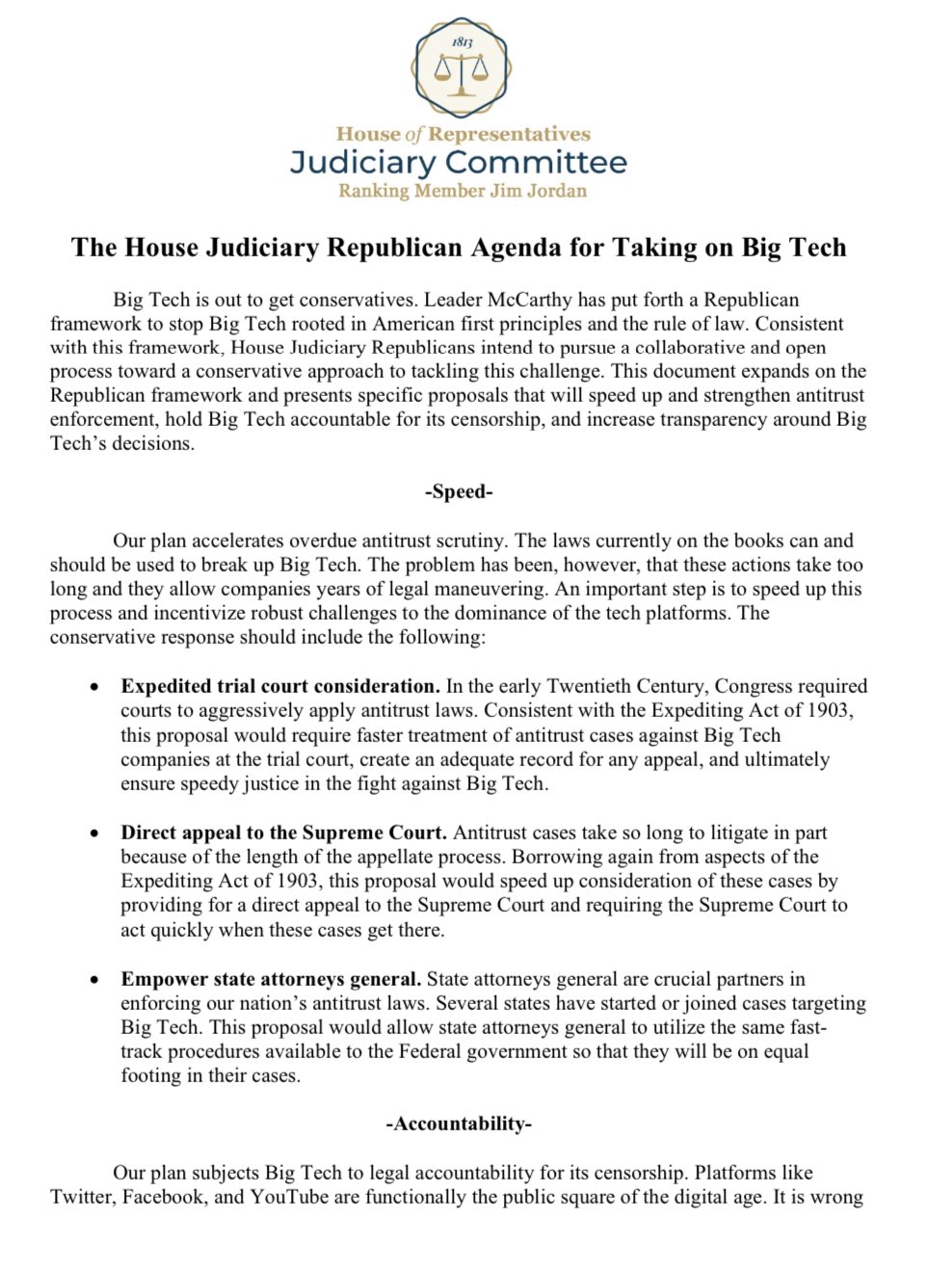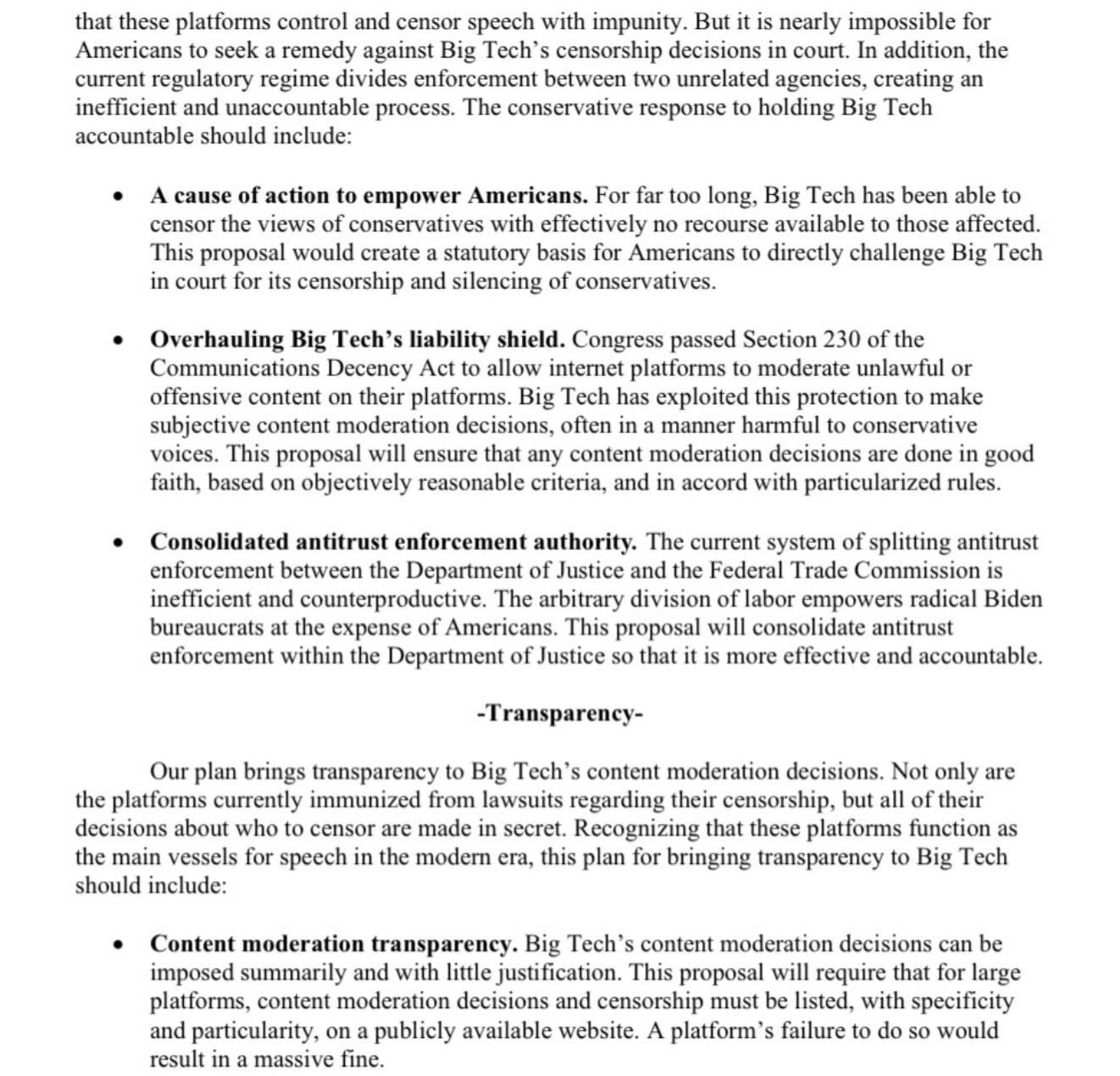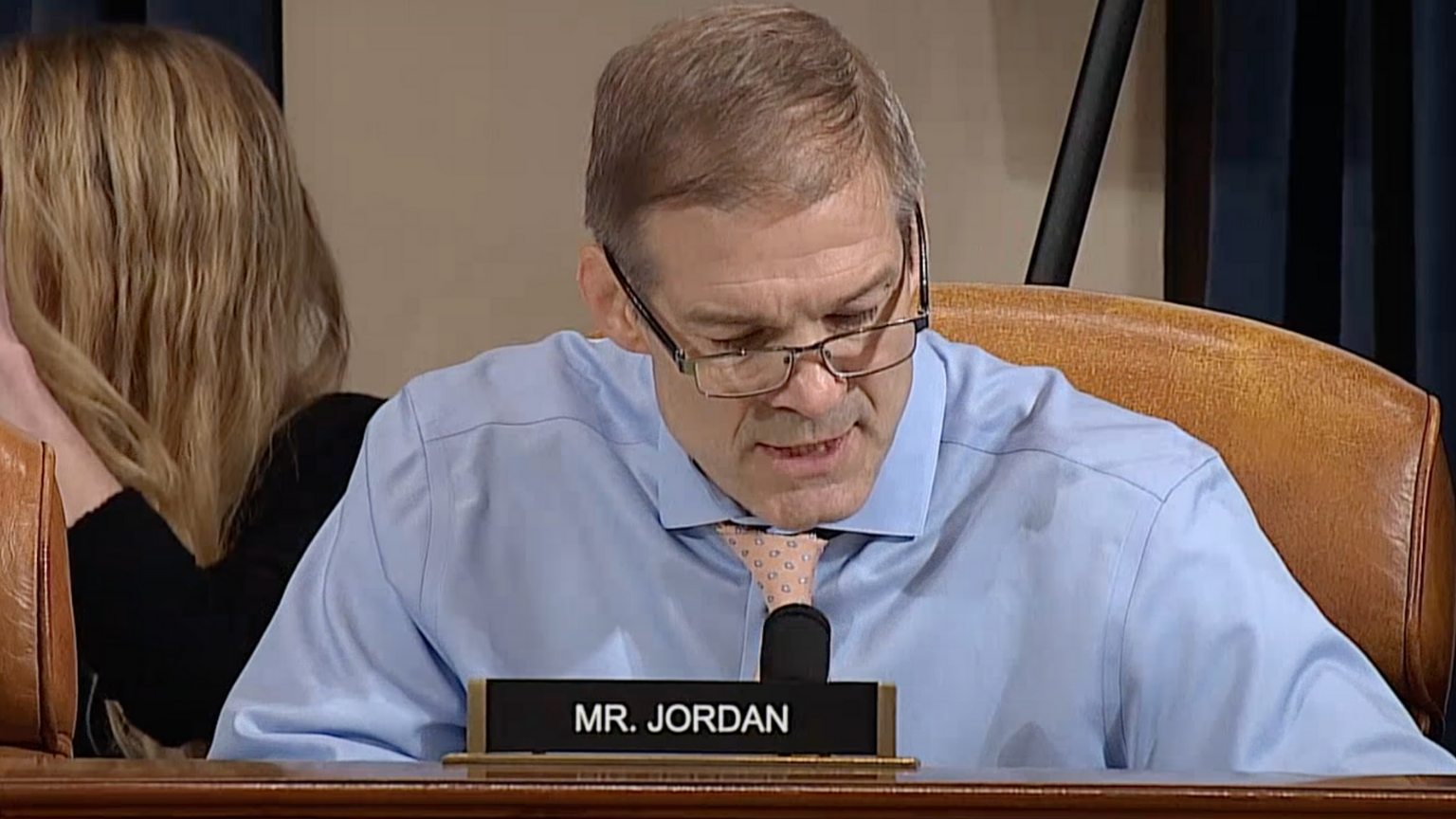Republican representatives in the House Judiciary Committee unveiled their “agenda for taking on Big Tech” for silencing opinions through censorship.
The agenda, fronted by ranking member of the committee Rep. Jim Jordan (R-OH), contains proposals that “will speed up and strengthen antitrust enforcement, hold Big Tech accountable for its censorship, and increase transparency around Big Tech’s decisions.”
The agenda is a multipart approach targeting the areas that make suing and holding Big Tech companies accountable a difficult process, which are the speed of cases against these companies, their accountability, and transparency.


The document states that actions against these companies “take too long and they allow companies years of legal maneuvering.”
For that reason, Republicans suggest “faster treatment of antitrust cases against Big Tech companies,” “providing for a direct appeal to the Supreme Court and requiring the Supreme Court to act quickly when these cases get there,” and empowering state attorneys general allowing them “to utilize the same fast-track procedures available to the Federal government.”
According to the document, the lack of accountability is the reason these companies “control and censor speech with impunity.”
To hold platforms accountable, the agenda suggests the creation of a “statutory basis for Americans to directly challenge Big Tech in court for its censorship,” the revision of Section 230 to “ensure that any content moderation decisions are done in good faith, based on objectively reasonable criteria, and in accord with particularized rules,” and consolidating “antitrust enforcement within the Department of Justice so that it is more effective and accountable.” In the current system, antitrust enforcement is split between the DoJ and FTC, making the system “inefficient and counterproductive.”
The third point in the GOP’s agenda is ensuring transparency in social media platforms content moderation decisions. The Republicans noted that platforms make content moderation decisions in secret, adding these decisions are “imposed summarily and with little justification.” A good solution to this problem would be requiring these platforms to list their content moderation and censorship decisions “with specificity and particularity, on a publicly available website.”
The House Judiciary Republicans will introduce the agenda as a bill “in the coming weeks,” after they consult with House Minority Leader Kevin McCarthy (R-CA).










